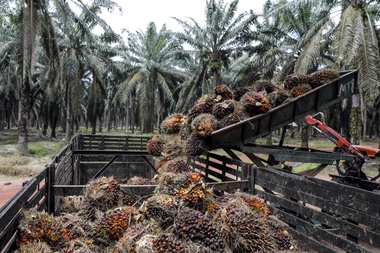Introduction
Palm oil is a crucial commodity for Indonesia, contributing significantly to its economy and global trade. In recent years, the country has emerged as one of the largest producers and exporters of palm oil worldwide.
Importance of Palm Oil Export to Indonesia’s Economy
The export of palm oil plays a pivotal role in Indonesia’s economy, generating substantial revenue and providing employment opportunities for millions of people. The industry contributes significantly to the country’s GDP and foreign exchange earnings.
Environmental Concerns Surrounding Palm Oil Production
Despite its economic benefits, palm oil production has raised environmental concerns, particularly regarding deforestation and biodiversity loss. The expansion of palm oil plantations often leads to the destruction of rainforests, threatening endangered species and exacerbating climate change.
Deforestation
The rapid expansion of palm oil plantations has been a primary driver of deforestation in Indonesia, leading to habitat destruction and loss of biodiversity. This has significant implications for the environment and indigenous communities.
Biodiversity Loss
The conversion of forests into palm oil plantations has resulted in the loss of critical habitats for various species, including orangutans, tigers, and elephants. The destruction of ecosystems contributes to the decline of biodiversity and threatens the survival of endangered species.
Efforts Towards Sustainable Palm Oil Production
To address environmental concerns, stakeholders in the palm oil industry have implemented measures to promote sustainable production practices.
RSPO Certification
The Roundtable on Sustainable Palm Oil (RSPO) certification ensures that palm oil is produced in an environmentally and socially responsible manner. Companies adhering to RSPO standards commit to reducing deforestation, protecting biodiversity, and respecting the rights of local communities.
Government Regulations
The Indonesian government has also implemented regulations to promote sustainable palm oil production. These include policies aimed at conserving forests, enforcing land-use planning, and promoting responsible land management practices.
Challenges Faced by Indonesia’s Palm Oil Exporters
Despite efforts to promote sustainability, Indonesia’s palm oil exporters face various challenges that hinder their market access and profitability.
Trade Barriers
Trade barriers imposed by importing countries, such as tariffs and quotas, pose challenges for Indonesia’s palm oil exporters. These barriers restrict market access and affect the competitiveness of Indonesian palm oil in the global market.
Negative Publicity
Negative publicity surrounding the environmental and social impacts of palm oil production has tarnished the industry’s reputation. Campaigns by environmental organizations and consumer activism have led to increased scrutiny of palm oil supply chains and raised awareness among consumers about the need for sustainable alternatives.
Strategies for Expanding Indonesia’s Palm Oil Export Market
To overcome challenges and expand market share, Indonesia’s palm oil industry can implement various strategies to diversify its product offerings and target emerging markets.
Diversification of Products
By diversifying product offerings, such as palm oil derivatives and biofuels, Indonesia can tap into new market segments and reduce its reliance on traditional palm oil exports.
Market Penetration in Emerging Economies
Expanding market penetration in emerging economies offers significant growth opportunities for Indonesia’s palm oil industry. These markets present untapped potential for palm oil consumption, driven by rising incomes and changing dietary preferences.
Future Outlook for Indonesia’s Palm Oil Export Industry
Despite challenges, Indonesia’s palm oil export industry remains resilient, poised for continued growth in the global market. By embracing sustainable practices and exploring new market opportunities, the industry can ensure long-term viability and contribute to Indonesia’s economic development.
Conclusion
Indonesia’s palm oil export industry plays a vital role in the country’s economy, but it faces challenges related to environmental sustainability and market access. By adopting sustainable practices and diversifying product offerings, the industry can overcome these challenges and maintain its position as a leading global supplier of palm oil.
Unique FAQs
What makes Indonesian palm oil unique?
Indonesian palm oil is known for its high quality and versatility, making it suitable for various applications in food, cosmetics, and biofuels industries.
How does palm oil production impact the environment?
Palm oil production has been linked to deforestation, habitat loss, and biodiversity decline, posing significant environmental challenges.
What is RSPO certification, and why is it important?
RSPO certification ensures that palm oil is produced using sustainable practices, promoting environmental conservation and social responsibility within the industry.
What efforts are being made to address the environmental impacts of palm oil production?
Stakeholders in the palm oil industry are implementing measures such as reforestation, zero-deforestation commitments, and sustainable land management practices to mitigate environmental impacts.
How can consumers support sustainable palm oil production?
Consumers can support sustainable palm oil production by choosing products certified by organizations like RSPO, advocating for transparent supply chains, and supporting companies committed to sustainability initiatives.

